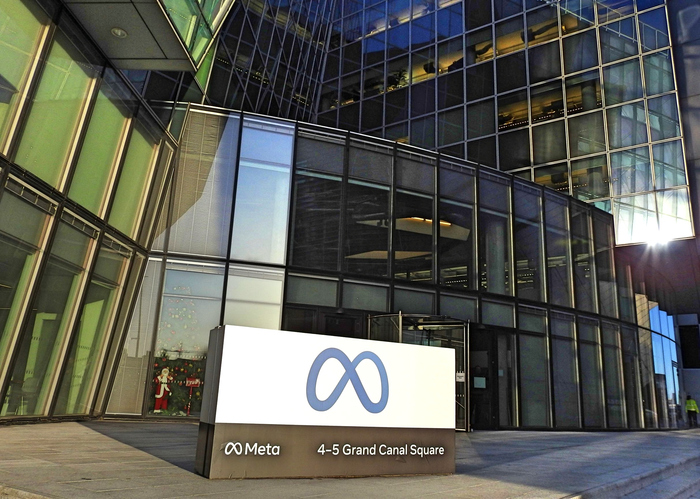How Do I Appeal an SEC’s Whistleblower Award Determination?
The SEC has established a whistleblower program designed to incentivize individuals to report violations of the federal securities laws. However, not all determinations made by the SEC align with the whistleblower's expectations, leading some to appeal the decision.
May 14, 2025

This information is provided for educational purposes only by Kohn, Kohn & Colapinto and does not constitute legal advice. No attorney-client relationship is created by accessing this content. Laws and regulations may change, and this material may not reflect the most current legal developments. If you believe you have a whistleblower claim, consult a qualified attorney to discuss your specific circumstances.
The U.S. Securities and Exchange Commission (SEC) has established a whistleblower program designed to incentivize individuals to report violations of the federal securities laws.
If these tips lead to a successful enforcement action with sanctions exceeding $1 million, whistleblowers may be eligible for a monetary award. However, not all determinations made by the SEC align with the whistleblower’s expectations, leading some to appeal the decision.
If you are a whistleblower and your reward application was denied, or their award determination did not meet your expectations, you may want to follow along to learn how you can get more information regarding the decision process.
Ex-SEC Acting Chair Allison Herren Lee Joins Our Firm as Of Counsel
At Kohn, Kohn & Colapinto, Allison Herren Lee, now serving as Of Counsel, specializes in representing whistleblowers who report fraud, misconduct, or securities violations under the SEC Whistleblower Program. If you’re considering challenging an SEC decision, we invite you to contact our law firm for a confidential consultation with Allison Lee.
Choosing the Right Whistleblower Attorney
Blowing the whistle on unethical or illegal practices can have significant repercussions. While it’s a brave act, it isn’t without potential pitfalls. This is where the guidance of a seasoned whistleblower attorney comes in. They don’t just offer legal advice; they provide a shield, safeguarding your rights, reputation, and future. Below are our top considerations when choosing a whistleblower attorney:
1. Initial Award Determination
The first step in the whistleblower award process is the issuance of a Preliminary Determination by the SEC’s Claims Review Staff (CRS). This determination states whether the whistleblower is eligible for an award and, if eligible, the amount of the award.
2. Requesting the Record
Should a whistleblower disagree with the CRS’s Preliminary Determination, they have the option to request the record upon which the determination was based. This record offers a detailed overview of the CRS’s decision-making process. To secure this record, a whistleblower typically needs to make a request within 60 calendar days of receiving the Preliminary Determination.
3. Filing a Notice of Appeal
Once a whistleblower decides to appeal the Preliminary Determination, they must submit a written notice to the SEC’s Office of the Whistleblower. This notice should be filed within 60 calendar days of receiving the Preliminary Determination or within 60 days of obtaining the record, whichever comes later.
4. Preparing a Written Submission
The next step involves the whistleblower presenting their case. This is done by submitting a written response that details their disagreements with the Preliminary Determination. This submission should be comprehensive, clear, and supported with all necessary documentation to make a compelling case.
5. Commission’s Review
After the written submission is filed, the SEC Commission will review the whistleblower’s objections alongside the CRS’s Preliminary Determination and any related documentation. It’s worth noting that the Commission typically makes its decision based on the written submissions alone, without the need for a hearing.
6. The Final Determination
Following the review, the Commission will issue its Final Determination. This will state whether the whistleblower is entitled to an award and the amount of the award. This determination is binding, meaning the decision, in most instances, is final and cannot be revisited by the SEC.
7. Taking the Appeal to Federal Court
In rare circumstances, if a whistleblower believes that the SEC’s Final Determination is inconsistent with existing law, they might have an avenue to appeal the decision to the U.S. Court of Appeals. However, this is a significant step and is usually undertaken when there are strong legal grounds for disagreement.
Given the complexity of the SEC’s whistleblower program and the appeal process, whistleblowers can benefit from strong legal counsel. It’s suggested you consult with an attorney experienced in whistleblower cases or with a deep understanding of the securities industry to navigate the intricacies of the appeal process effectively.
Our Firm’s Cases

Environment & Human Rights Violations Exposed
Oil industry’s environmental crimes and cover-up in Colombia have been exposed. Whistleblower Andrés Olarte Peña, with the support of his attorneys Kohn, Kohn & Colapinto and the damning evidence compiled in the Iguana Papers, is calling for an investigation into Ecopetrol and its executives by the Colombian government and the U.S. Securities and Exchange Commission.

$30 Million Award
Protecting the confidentiality of Wall Street whistleblowers is among the most important breakthroughs in federal whistleblower law. Under the Dodd-Frank Act, whistleblowers can file anonymous cases, and everything about their case, including who they sued, remains secret.

$13.5 Million Award
Our firm represented an anonymous whistleblower, who on May 17, 2021, received a whistleblower award of almost $13.5 million. The SEC has issued more than $31 million in whistleblower awards related to this case.

![Reporting Recordkeeping Failures To The Sec [2025 Guide]](https://kkc.com/wp-content/uploads/2025/01/Recordkeeping-Failures.jpg)




